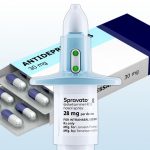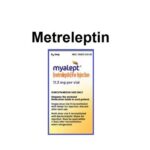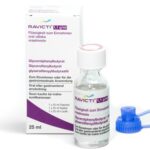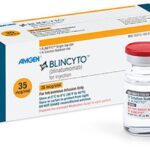Levomilnacipran (Fetzima): Uses, Dosage, Side Effects, Price, Reviews
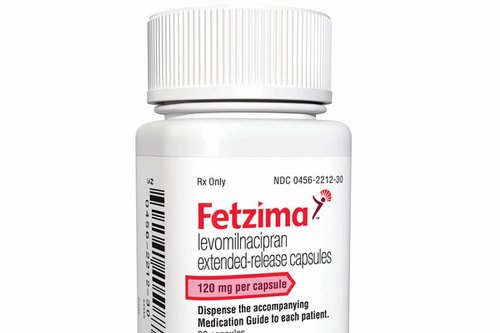
What Is Levomilnacipran (Fetzima) And What Does It Treat?
Levomilnacipran (Fetzima) is an antidepressant medication that works in the brain. It is approved for the treatment of major depressive disorder (MDD). A similar medicine called milnacipran (Savella) is used to treat a chronic pain disorder called fibromyalgia. Levomilnacipran (Fetzima) should not be used to treat fibromyalgia.
Symptoms of depression include:
• Depressed mood – feeling sad, empty, or tearful
• Feeling worthless, guilty, hopeless, and helpless
• Loss of interest or pleasure in your usual activities
• Sleep and eat more or less than usual (for most people it is less)
• Low energy, trouble concentrating, or thoughts of death (suicidal thinking)
• Psychomotor agitation (‘nervous energy’)
• Psychomotor retardation (feeling like you are moving and thinking in slow motion)
• Suicidal thoughts or behaviors
What Is The Most Important Information I Should Know About Levomilnacipran (Fetzima)?
Do not stop taking Levomilnacipran (Fetzima), even when you feel better. With input from you, your health care provider will assess how long you will need to take the medicine.
Missing doses of Levomilnacipran (Fetzima) may increase your risk for relapse in your symptoms.
Stopping Levomilnacipran (Fetzima) abruptly may result in one or more of the following withdrawal symptoms: irritability, nausea, dizziness, vomiting, nightmares, headache, and/or paresthesias (prickling, tingling sensation on the skin).
Depression is also a part of bipolar illness. People with bipolar disorder who take antidepressants may be at risk for “switching” from depression into mania. Symptoms of mania include “high” or irritable mood, very high self-esteem, decreased need for sleep, pressure to keep talking, racing thoughts, being easily distracted, frequently involved in activities with a large risk for bad consequences (for example, excessive buying sprees).
Medical attention should be sought if serotonin syndrome is suspected. Please refer to serious side effects for signs/symptoms.
What Should I Discuss With My Health Care Provider Before Taking Levomilnacipran (Fetzima)?
• Symptoms of your condition that bother you the most
• If you have thoughts of suicide or harming yourself
• Medications you have taken in the past for your condition, whether they were effective or caused any adverse effects
• If you experience side effects from your medications, discuss them with your provider. Some side effects may pass with time, but others may require changes in the medication.
• Any other psychiatric or medical problems you have, including a history of bipolar disorder
• All other medications you are currently taking (including over the counter products, herbal and nutritional supplements) and any medication allergies you have
• Other non-medication treatments you are receiving, such as talk therapy or substance abuse treatment. Your provider can explain how these different treatments work with the medication.
• If you are pregnant, plan to become pregnant, or are breastfeeding
• If you drink alcohol or use drugs
How Should I Take Levomilnacipran (Fetzima)?
Levomilnacipran (Fetzima) is usually taken one time per day with or without food.
Typically patients begin at a low dose of medicine and the dose is increased after a few days.
The dose usually ranges from 20 mg to 120 mg. Only your health care provider can determine the correct dose for you.
Take the capsules whole; do not open, crush, or chew.
Consider using a calendar, pillbox, alarm clock, or cell phone alert to help you remember to take your medication. You may also ask a family member or friend to remind you or check in with you to be sure you are taking your medication.
What Happens If I Miss A Dose Of Levomilnacipran (Fetzima)?
If you miss a dose of Levomilnacipran (Fetzima), take it as soon as you remember, unless it is closer to the time of your next dose. Discuss this with your health care provider. Do not double your next dose or take more than what is prescribed.
What Should I Avoid While Taking Levomilnacipran (Fetzima)?
Avoid drinking alcohol or using illegal drugs while you are taking antidepressant medications. They may decrease the benefits (e.g., worsen your condition) and increase adverse effects (e.g., sedation) of the medication.
What Happens If I Overdose With Levomilnacipran (Fetzima)?
If an overdose occurs, call your doctor or 911. You may need urgent medical care. You may also contact the poison control center at 1-800-222-1222. A specific treatment to reverse the effects of Levomilnacipran (Fetzima) does not exist.
How Long Does It Take For Levomilnacipran (Fetzima) To Work?
Sleep, energy, or appetite may show some improvement within the first 1-2 weeks. Improvement in these physical symptoms can be an important early signal that the medication is working. Depressed mood and lack of interest in activities may need up to 6-8 weeks to fully improve.
Can a pregnant woman take Levomilnacipran (Fetzima)?
If you are planning on becoming pregnant, notify your health care provider to best manage your medications. People living with MDD who wish to become pregnant face important decisions. Untreated MDD has risks to the fetus, as well as the mother. It is important to discuss the risks and benefits of treatment with your doctor and caregivers. For women who take antidepressant medications during weeks 13 through the end of their pregnancy (second and third trimesters), there is a risk that the baby can be born before it is fully developed (before 37 weeks).
Can a breastfeeding woman take Levomilnacipran (Fetzima)?
Regarding breastfeeding, caution is advised since it is not known if Levomilnacipran (Fetzima) passes into breast milk, so it is important to discuss this with your doctor and caregivers.
What Are The Possible Side Effects Of Levomilnacipran (Fetzima)?
Levomilnacipran (Fetzima) may cause side effects. Tell your doctor if any of these symptoms are severe or do not go away:
• changes in heart rate and blood pressure
• changes in sex drive or ability
• constipation
• decreased appetite
• erectile dysfunction
• excessive sweating
• nausea
• vomiting
Some side effects can be serious. If you experience any of these symptoms, stop taking Levomilnacipran (Fetzima) and call your doctor immediately or get emergency medical treatment:
• abnormal bleeding or bruising
• difficulty breathing or swallowing
• difficulty urinating or unable to urinate
• fever, sweating, confusion, fast or irregular heartbeat, and severe muscle stiffness or twitching
• hives
• rapid, pounding, or irregular heartbeat
• rash
• swelling
Levomilnacipran (Fetzima) may cause other side effects. Call your doctor if you have any unusual problems while taking this medication.
Is Levomilnacipran (Fetzima) a safe medication?
This medicine is safe when used as prescribed. However, Levomilnacipran (Fetzima) can cause serotonin syndrome (symptoms may include shivering, diarrhea, confusion, severe muscle tightness, fever, seizures, and death), increased blood pressure, low sodium (symptoms of low sodium levels may include headache, weakness, difficulty concentrating and remembering), angle-closure glaucoma (symptoms of angle-closure glaucoma may include eye pain, changes in vision, swelling or redness in or around the eye).
Levomilnacipran (Fetzima) may also increase the risk of bleeding events. Combined use of aspirin, nonsteroidal anti-inflammatory drugs (e.g., ibuprofen, naproxen), warfarin, and other anti-coagulants may increase this risk. This may include gums that bleed more easily, nose bleed, or gastrointestinal bleeding. Some cases can be life-threatening.
Are There Any Risks For Taking Levomilnacipran (Fetzima) For Long Periods Of Time?
To date, there are no known problems associated with the long-term use of Levomilnacipran (Fetzima). It is a safe and effective medication when used as directed.
What Other Medications May Interact With Levomilnacipran (Fetzima)?
Levomilnacipran (Fetzima) should not be taken with or within 2 weeks of taking monoamine oxidase inhibitors (MAOIs). These include phenelzine (Nardil®), tranylcypromine (Parnate®), isocarboxazid (Marplan®), and selegiline (Emsam®).
Although rare, there is an increased risk of serotonin syndrome when Levomilnacipran (Fetzima) is used with other medications that increase serotonin, such as other antidepressants, migraine medications called “triptans” (e.g., Imitrex®), some pain medications (e.g., tramadol (Ultram®)), and the antibiotic linezolid (Zyvox®).
Levomilnacipran (Fetzima) may increase the effects of other medications that can cause bleeding (e.g., ibuprofen (Advil®, Motrin®), warfarin (Coumadin®), and aspirin).
The following medications may increase the levels and effects of Levomilnacipran (Fetzima):
• The following medications may increase the levels and effects of Levomilnacipran (Fetzima):
• Antibiotics, such as clarithromycin (Biaxin®) and azithromycin (Zithromax®)
• Antidepressants, such as fluoxetine (Prozac®), paroxetine (Paxil®), and nefazodone
• Antifungals, such as fluconazole (Diflucan®), ketoconazole (Nizoral®), and itraconazole (Sporanox®)
• The antiarrhymia agent quinidine
• HIV medications, such as the protease inhibitors indinavir (Crixivan®), ritonavir (Norvir®), saquinavir (Fortovase®, Invirase®), and lopinavir/ritonavir (Kaletra®)
What is the price of Levomilnacipran (Fetzima)?
A one-month supply of levomilnacipran costs approximately $286. Prices are identical for 20-, 40-, 80-, and 120-mg capsules. In comparison, a 30-day supply of venlafaxine (37.5 mg per day) costs approximately $15, and duloxetine (Cymbalta; 30 mg per day) costs approximately $40.

